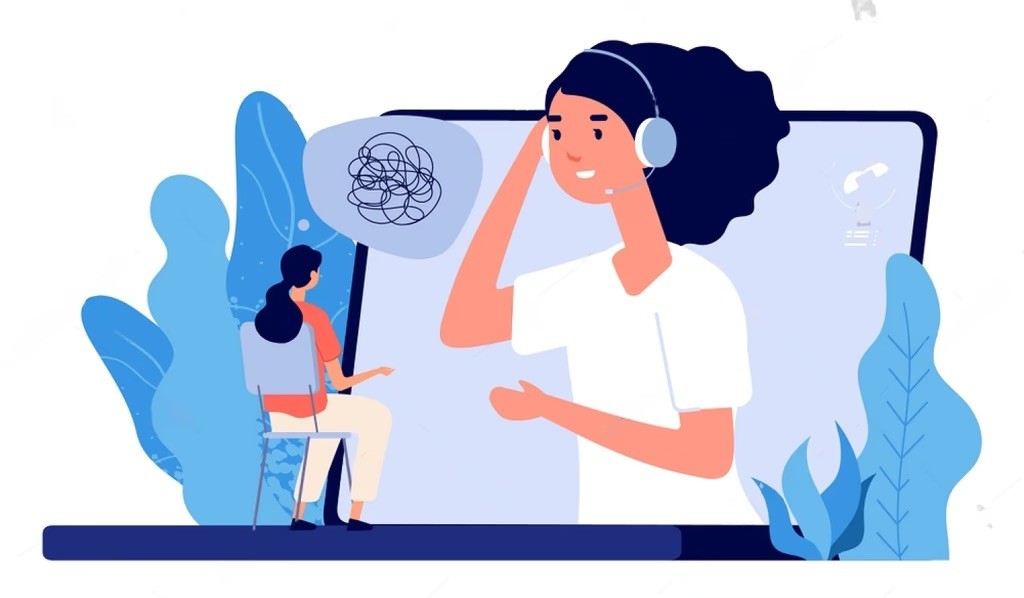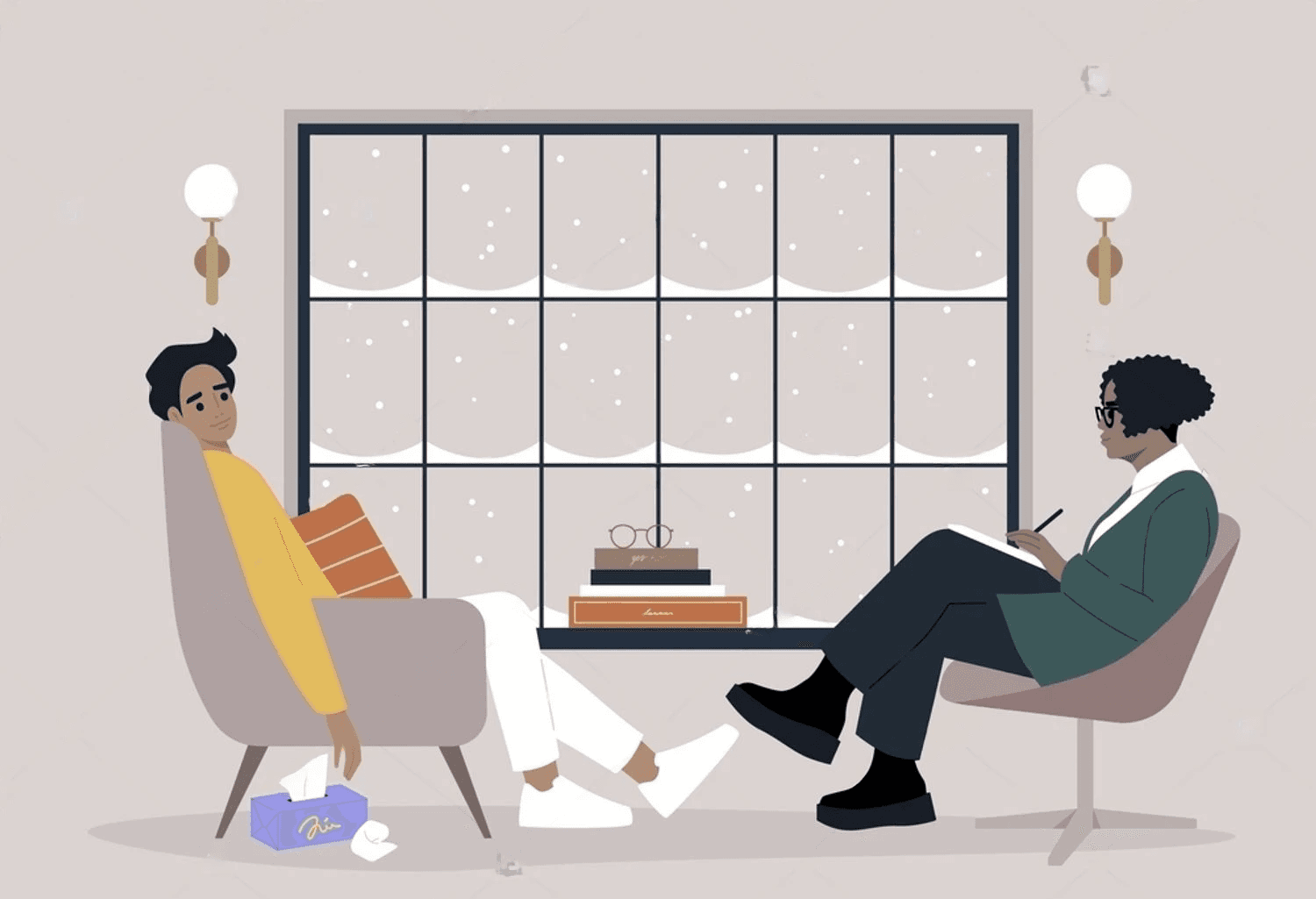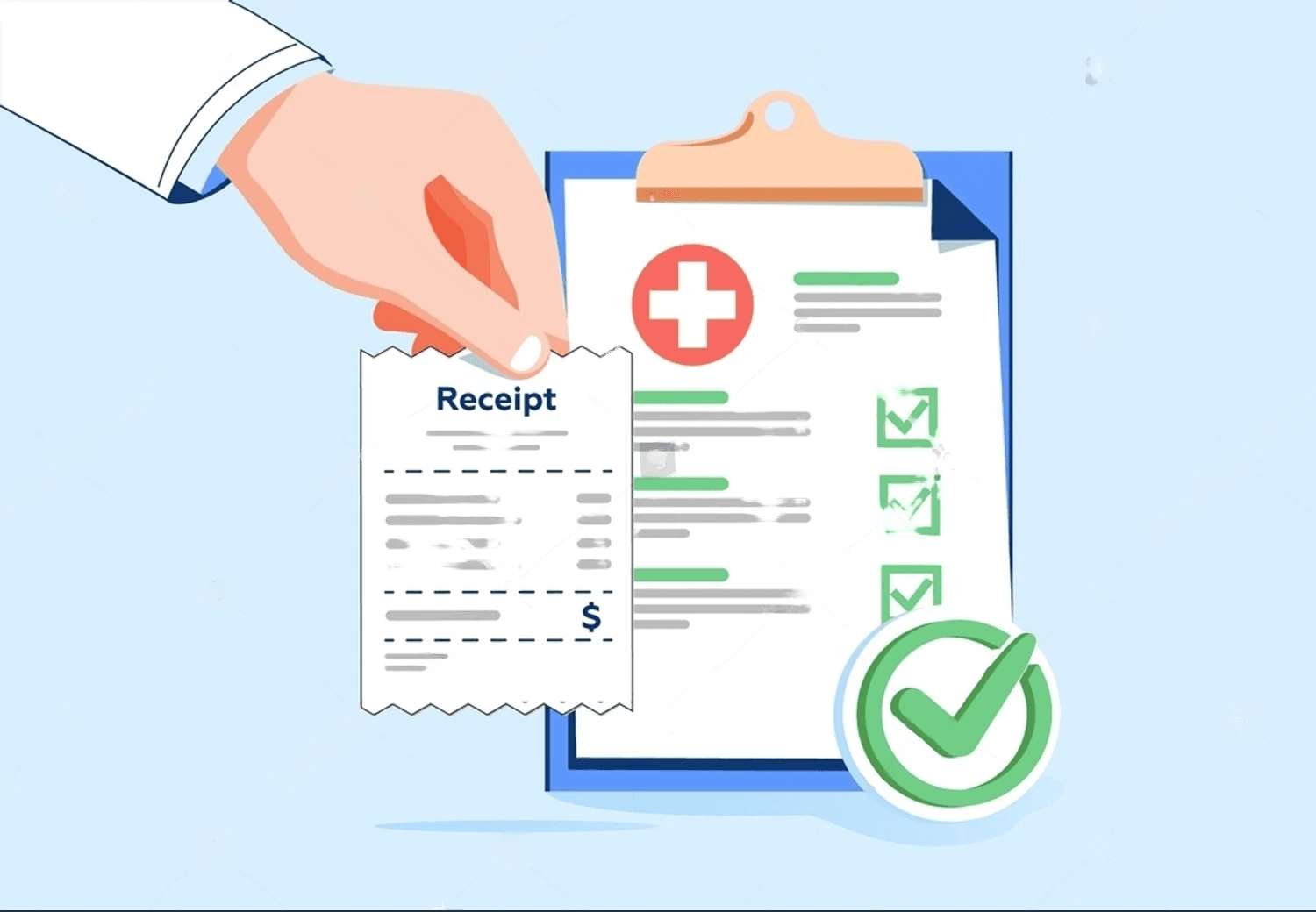The Pros and Cons of Online Therapy
Online therapy offers several advantages, such as convenience, increased accessibility, and cost-effectiveness, making mental health care more widely available
Apr 26, 2024
By
Team Allia
By 2019, the internet had already opened up several avenues to get things done remotely, and the pandemic only served to speed that up. Like everything else going online, therapy was now also accessible through the internet. Video calls, audio calls - even text messages!
But is online therapy really an effective way to get counselling done? After all, how much of your recovery and healing can you really attribute to a phone call?
Let’s take a look at some of the pros and cons of online therapy, and what makes it an effective way to go about things.
Benefits of Online Therapy
In-person therapy remains the gold standard for treating many mental health conditions, like generalised anxiety disorder and social anxiety disorder. However, online counselling can help improve accessibility and provide quality mental healthcare for those facing physical limitations or issues with health insurance that may prevent close and direct in-person treatment. While virtual therapy cannot replace person-centered therapy for serious psychiatric illnesses, it can effectively supplement care and treatment for psychological health issues related to various mental health conditions. More research is still needed to determine if online treatment yields comparable outcomes across different mental health conditions.
There are several benefits to online therapy compared to in-person therapy that make it a better choice for some people.
Convenience
The modern world is characterised by fast-paced lifestyles, endless responsibilities, and little time to spare. Any spare time you do have, you don’t really want to spend driving around to complete yet another task on your to-do list.
Traditional in-person therapy can be challenging to fit into your busy schedule, and can be even more of a hassle if there is a long drive involved. With online treatment, you get to choose when and where you engage in your therapy session. All you need is a device, an internet connection and a quiet space for a direct treatment.
Whether you’re at work, at home, at a hotel away from your city, you can integrate your therapy sessions into your daily routine without trouble. Reduced travel time also means you can start your session promptly, without the time associated with traveling to-and-fro.
Increased Access
A significant advantage of online therapy is that it offers you much greater access to mental health services. In fact, back in 2018, there were approximately 102,000 active doctoral-level psychologists in the USA—that’s only 31 psychologists per 100,000 people.
And on top of that, the distribution is quite uneven. Some states have up to 16,000 active psychologists in the area (California), while others have as few as 170 (Alaska). Keeping that in mind, along with rising fuel prices, it becomes extremely difficult for the average person to move around looking for mental health services.
When you factor disabled people into the mix, it becomes even more complex. Disabled adults are 8 times more likely to face mental distress than those without disabilities. Ironically, the people who need therapy the most are the ones who face the most difficulty, considering their mobility is often dependent on others.
Geographical and mobility concerns are often barriers for people who need therapy. In rural areas, this is a bigger problem than in urban areas.
Online therapy breaks down these barriers because you are no longer limited to services present in your area—or even your city, state or country! In fact, nowadays, there are several online therapists that offer services all over the world.
This is a huge benefit to people who find it difficult to attend online therapy sessions. Going online lets mental health support become more accessible and inclusive.
Privacy Concerns
Privacy is a major concern for patients when it comes to therapy. Many individuals hesitate to seek help because of the stigma attached to mental health issues. Others may fear that their families may find out they are seeking mental health support if they are found going to-and-from a therapist's office.
Online therapy also offers benefits here. It provides a level of privacy that is difficult to replicate in traditional face-to-face sessions.
In fact, with online therapy, patients can maintain complete anonymity, since they are not required to disclose their identity or engage in video sessions.
Cost-Effectiveness
Traditional therapy can be expensive, and the costs are often a major barrier towards mental health issues going unaddressed. While the cost of therapy itself does not necessarily go down, the fuel and transport costs associated with traditional therapy do.
Some online therapy platforms also have different pricing options for different therapists, so you can choose the level of service that fits your budget.
Online therapy is also cost-effective for therapists. Because there is no longer a need for a physical office, their cost of business goes down, while their reach increases across geographical areas and potentially also brings up their client base. In some cases, this results in lower prices for sessions themselves, which can also become cost-effective for the clients.
Access to Specialised Therapists
In some cases, even when there is a therapist in your area, they may not provide specialised services you need. For example, some therapists excel in specific forms of therapy like cognitive behavioural therapy or dialectical behaviour therapy.
With online therapy platforms, you have a wider range of options for finding online therapy. This way, you can ensure that you get treatment tailored to your specific needs. After all, what would be the point of getting therapy if you couldn’t benefit properly from it?
Support for Diverse Needs
In some cases, particularly in areas with a less diverse population, you may not be able to find an online therapist who can understand where you’re coming from. For example, an expat from another country may not be able to explain deeply-ingrained cultural nuances to a therapist who doesn’t belong to said culture.
Similarly, members of specific communities, like the LGBT community, may not feel comfortable speaking to someone who doesn’t belong to the community.
After all, there are always several layers to mental health troubles. To offer effective treatment and care, the therapist has to understand what their client is thinking and feeling to a certain extent.
While therapists from specific communities may not be available to offer services in person, online therapy offers greater availability and, thus, better help options for people of minority groups.
Comfort & Familiarity
Not everyone feels comfortable sharing intimate details about themselves with another person, particularly not when they are there in person. It’s very difficult to bring up trauma, embarrassing moments, or even life-defining instances without feeling self conscious, anxious or otherwise troubled.
Online therapy offers you just the right amount of physical distance from the therapist, with different options according to your comfort level. From video calls to phone calls and emails, you can pick which you feel most comfortable with, and get help accordingly.
For some, the comfort and familiarity of their own environment can also be a factor. Being in a space where you feel safe and secure makes you more likely to relax and open up during your sessions. This will obviously result in better treatment and care, without the distraction or anxiety associated with a clinical setting.
Drawbacks of Online Therapy
Unfortunately, as great as online therapy can be, it also has its drawbacks. Nothing in the world is free, and online therapy pays its price in different ways.

Limited Non-Verbal Cues
A critical aspect of therapy is the therapist's ability to read non-verbal cues like body language, facial expressions and gestures. These cues give them deeper insight into what you are feeling, whether your words match your inner thoughts, whether there is something deeper that you haven’t quite realized yet.
In the online environment, it can be quite challenging for therapists to properly capture and interpret these nuances. They may mistake some cues for others and miss some entirely. This can potentially impact the effectiveness of the therapy itself.
Technical Issues
Relying on technology brings a brand new problem to the stage: the failure of said technology. In-person therapy does not require anything but the therapist and the patient sitting in the same room, but online therapy needs an internet connection and a device that allows for a video or audio connection.
In most cases, this isn’t an issue since most of us have smartphones handy with us at all times. But disruptions are still quite possible, which can be frustrating and make therapy less effective for both clients and therapists.
On top of that, not everyone is tech-savvy, and online therapy platforms can be challenging for some people to use. Clients who are unfamiliar with digital technology may face more difficulty navigating these tools, which can be frustrating for them.
Security and Privacy Concerns
Some people may also have concerns about the security of online platforms. Client data and privacy is always at risk of breaches or unauthorized access. This can be especially concerning in therapy spaces, where lots of personal and sensitive information is shared online. This could potentially hinder their willingness to seek help.
Limited Crisis Intervention
A major downside of online therapy is that it’s not very suitable when it comes to immediate crisis situations, such as when patients are experiencing suicidal thoughts, are in severe emotional distress or if there are any safety concerns. Online therapists may not be able to effectively intervene, which is crucial during such emergencies.
Distractions in the Environment
Online therapy is only effective if it takes place in an environment suitable for sessions. In-person therapy takes place in the therapist's office, which is designed specifically for therapy, but finding a similar environment can be challenging elsewhere.
Distractions in the client’s location like household noises, interruptions, and sometimes even the presence of others, can disrupt focus, make them unable or unwilling to speak and limit effectiveness.
Lack of In-Person Connection
Sometimes, the absence of in-person interactions can create a sense of disconnect for clients, especially those who are seeking that interaction. Traditional therapy prioritises the physical presence of therapists, which creates a safe and comfortable environment.
The therapy environment also helps with making the client focus on themselves, and talk about their problems. That lack of connection can sometimes make the client feel isolated or detached from their own therapy sessions, which can make therapy unproductive.
Risk of Miscommunication & Misdiagnosis
Online therapy naturally has some communication barriers. This includes audio or video delays, the lack of non-verbal cues, and other aspects that could lead to miscommunication on either person’s part. This is not only frustrating, but can lead to a bigger problem: misdiagnosis.
If there is any context lacking, or any miscommunication, the risk of a misdiagnosis or inaccurate assessment also goes up, which can create major problems down the line.
Impact on the Therapist
Online therapy not only affects clients but also has implications for therapists. Plenty of therapists also face challenges with the online therapy environment, which can reduce effectiveness, even if the clients are comfortable with it.
These include:
Limited nonverbal cues means that some therapists may have difficulty reading their clients’ body language and facial expressions, making it difficult to gauge their emotions.
Extra vigilance is required in terms of data security and client confidentiality in an online environment.
Job satisfaction can sometimes be affected by the digital medium due to the lack of in-person connection.
Ethical and license complexities can pop up if therapists are operating over different regions, especially due to varying regulations, requirements and guidelines.
Work-life balance is affected since many online therapy can sometimes drag on outside traditional working hours.
Strategies for Effective Online Therapy
Though there are some challenges with online therapy, there are plenty of ways to carry it out effectively. With the world going online, there is plenty of work to be done to overcome these challenges and make therapy effective in that online space, rather than backing out altogether.
Establish a Dedicated Space
For online therapy to be effective, both therapists and clients should have a dedicated space for their sessions. This place should be private, comfortable and have minimal distractions to make sure it allows for open and honest discussions.
Test Technology
Before each session, both parties should test their technology and make sure everything is functional. This includes internet connection, audio and video quality, and the platform they are planning to use.
Use The Right Tools
As a therapist, you can use HIPAA-compliant platforms for therapy that are secure, encrypted and prioritize data protection. Some platforms for this include Doxy.me, Zoom for healthcare and Thera-Link.
Establish an Emergency Protocol
Since online therapy does have limitations around crisis intervention, therapists and clients should have an emergency protocol established for such situations. Therapists should know exactly who to contact and how to plan in-person support if it becomes necessary.
Offer Hybrid Options
For some clients, having a hybrid approach that combines online and in-person sessions may be helpful. This can overcome some of the issues of online therapy while also providing the convenience and ease it offers.
Use Analytics to Test Effectiveness
Analytics tools are used in pretty much every industry nowadays, and there’s no reason they can’t do the same for therapy. AI tools like Allia can help therapists keep a vigilant eye on patients’ progress and make sure online therapy is working for them. If it isn’t, they may want to try a different approach.
Final Thoughts
As healthcare continues to evolve, and the world goes more digital, the therapy sphere will undoubtedly see changes. Online therapy, while still facing some challenges, is a great opportunity for individuals who live fast-paced lives to get the help they need without having to sacrifice too much of their precious time.
As technology improves, it’s likely that the challenges we see in remote therapy nowadays will also be addressed, and this mode of treatment will become more effective and helpful than it already is.
More from Allia
Dec 16, 2024
Managing No-Show and Late Cancellation Clients in Therapy Practice
Managing No-Show and Late Cancellation Clients in Therapy Practice
Sep 12, 2024
How to conduct a therapy intake session? A detailed guide
How to conduct a therapy intake session? A detailed guide
Sep 11, 2024
A Guide to Billing Insurance for Therapy for Mental Health Professionals
A Guide to Billing Insurance for Therapy for Mental Health Professionals



